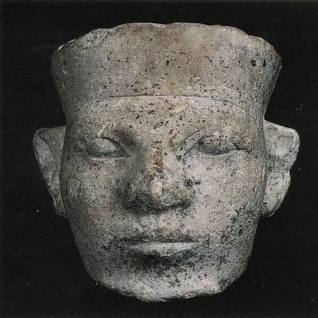
Skidelsky writes on 20 July 2020 in Project Syndicate:
‘I still regard economics’ detachment from culture as a serious shortcoming in understanding human behavior. But I now see considerable merit in this cultural neutrality, because it provides a “safe space” for thinking amid the culture wars that currently convulse the non-scientific intelligentsia and about which journalists love to pontificate.’ and later:
‘Another point in favor of economics is its valid claim to be color- and gender-blind. ‘
Skidelsky, R. (2020, July 20). Economics and the Culture War. Project Syndicate.
But is Western economics actually color-blind?
Let us have a look at Adam Smith. Most students will be familiar with Wealth of Nations but in the majority of cases they are given excerpts from Books I-III. It is in Book IV that Adam Smith turns to people of different colors.
In Book IV chapter VII part II: ’Of Colonies’, Smith writes:
‘But the prosperity of the sugar colonies of France has been entirely owing to the good conduct of the colonists, which must therefore have had some superiority over that of the English; and this superiority has been remarked in nothing so much as in the good management of their slaves.’
In what way was this superiority demonstrated:
“‘By the 1780s, nearly 40 percent of all the sugar imported by Britain and France and 60 percent of the world’s coffee came from the small colony. For a brief time, Saint-Domingue annually produced more exportable wealth than all of continental North America. “
This was an enormous extraction of wealth. The conditions of its extraction was widely known. 1776 was a period of inflamed discussion of the slave trade and its ills. In 1794 came the first French aboltion of slavery. Smith shows complete familiarity with the state of production in St Domingue but prefers not to detail it. Let us provide some details:
As Henri Christophe’s personal secretary stated:
‘Have they not hung up men with heads downward, drowned them in sacks, crucified them on planks, buried them alive, crushed them in mortars? Have they not forced them to eat excrement? And, having flayed them with the lash, have they not cast them alive to be devoured by worms, or onto anthills, or lashed them to stakes in the swamp to be devoured by mosquitoes? Have they not thrown them into boiling cauldrons of cane syrup? Have they not put men and women inside barrels studded with spikes and rolled them down mountainsides into the abyss? Have they not consigned these miserable blacks to man-eating dogs until the latter, sated by human flesh, left the mangled victims to be finished off with bayonet and poniard?”
Other contemporary reports described in horrific details the wanton cruelty of the plantation owners including one master throwing his chef alive into the oven because he was displeased with his meal, and on another occasion putting burning coals on a woman’s private parts as punishment.
How can Adam Smith maintain that this constituted ‘good management’? In technical economic and accounting terms this was absolutely not good management under any terms . Further and more directly to Skidelsky’s point, how has Western academia in general and Western economists in particular, so carefully hidden these comments over the years and miseducated their students?
For Adam Smith to consider the treatment of the slaves in St Domingue in 1776 shortly before the insurrection ( and shortly before the first French abolition in 1794) as ‘good management’ simply shows that for Adam Smith, to coin a phrase, Black Lives did Not Matter! No considerations of empathy or moral sympathy applies.
Clearly such considerations may not apply if these ‘people’ are not fully human for he considers the ‘good management’ of the slaves on a par with the management of cattle. This is Adam Smith, in an age of great debate about the need to abolish slavery, engaging in full scale culture wars! Any idea that Western economics was born outside of culture wars is lacking in any historical truth.
But Adam Smith’s recognition of racism and use of it as a political argument is actually more blatant and is in Chapter 1 read by every economics student but glossed over by their teachers:
‘Compared, indeed, with the more extravagant luxury of the great, his accommodation must no doubt appear extremely simple and easy; and yet it may be true, perhaps, that the accommodation of an European prince does not always so much exceed that of an industrious and frugal peasant, as the accommodation of the latter exceeds that of many an African king, the absolute master of the lives and liberties of ten thousand naked savages.‘
This statement is bristling with racism.
An ability to capture the value of one’s labour is not inherent or equally distributed which Adam Smith was well aware of. This proposal that even the poorest white is closer to the richest white than he is to a poor Black (we shall excuse references to African kings as hyperbole for now) was a determinative argument made by the slave owners of the time as part of the need to prevent poor whites aligning themselves with poor Blacks. Calhoun, the defender of Southern plantation way of life, was particularly articulate on this point. On the one hand we have an argument about African kings which require either that they do not trade or that they do not have any division of labour and/or are fundamentally not fully human. On the other hand we have an argument about poor white workers that within the British homeland makes little sense, for if they are hungry and ill-housed why should they care about the conditions of life many thousands of miles away?
But on one matter there can be no dispute: this statement, at the end of Chapter 1 of Wealth of Nations, is not color blind. Nor is Western economics.
( A fully annotated version of this can be found at :
https://www.academia.edu/43718172/Robert_Skidelsky_Is_Economics_color_blind )

